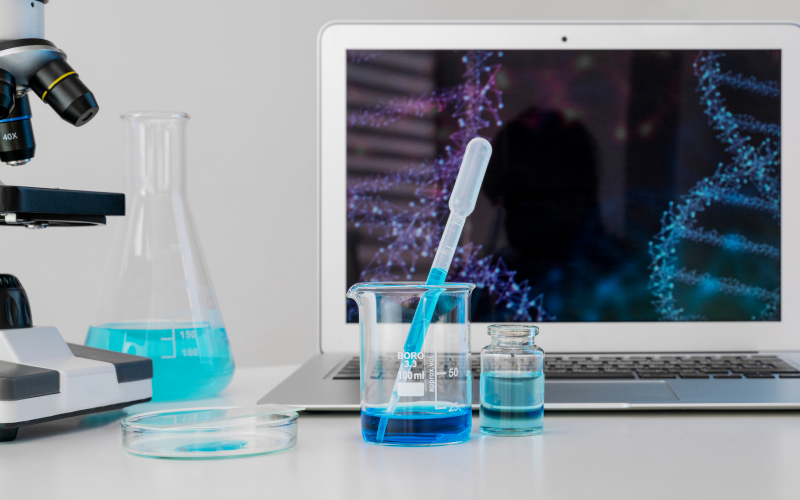

Biomedical Sciences is one of those interesting as well as crucial sets of sciences that have actually saved mankind and have helped develop with time. With the arrival of new therapies, the management of diseases and illnesses is made possible through biomedical sciences. How were vaccines for COVID-19 developed alongside those of previous outbreaks? This is because biomedical researchers have recorded significant success levels in their work.
According to the BLS, the employment of bio-engineers and biomedical engineers is projected to grow 10% from 2021 to 2031, faster than the average for all occupations. This shows the widening BSc in Biomedical Science scope.
In this article
ToggleBiomedical science is a vast field that supports modern medicine in numerous ways. Its role fluctuates from figuring out the blood requirements for critically ill individuals to discovering infectious disease outbreaks and monitoring cancer biomarkers. Professionals in this field mainly work in medical laboratories, where they detect medical conditions by examining bodily fluids and tissues collected from patients. They play a key part in modern medicine as about 70% of diagnoses made by doctors under the NHS are based on findings obtained from lab services.
It’s important to note that these courses are primarily focused on research and laboratory work rather than providing direct medical training. However, additional studies can be pursued to achieve medical qualifications.
As the medical world is witnessing progressive changes, healthcare needs the proficiency of specialists in medical lab science. Expanding spectrum of diseases and higher incidence of illnesses are coming up, such as antibiotic-resistant bacteria, which has led to an increased need for these experts.
Biomedical Sciences is a foundational block of medical or clinical procedures. If you do not have a deep understanding of the human internal body, you won’t be in a position to diagnose, and treat illness.
Moreover, why the demand for biomedical scientists is growing rapidly day by day is that we have an ageing population, which is also dumping more pressure on our already strained healthcare system. Furthermore, artificial intelligence, augmented reality, and big data analysis are some of the game-changing technologies that have been developed in the last few years, thus creating expanding job openings for people with such skills.
So, all of these factors add heavily to the demand for biomedical science professionals.
BSc Biomedical Science subjects establish fundamental knowledge in the sciences and are vital for comprehending human anatomy and the ailments it encounters. Furthermore, the curriculum might encompass studies in research methodologies, medical composition, and laboratory procedures, equipping students for professions in scientific inquiry or various healthcare sectors.
Graduates with this degree often find employment with organisations such as the:
Career Options after a BSc in Biomedical Science also exist in pathology and research labs within private hospitals.
Perfectly equipped for fulfilling careers in the food and drink industry as well as in the cosmetics, toiletries, pharmaceuticals and biotechnology areas – just a few of the sectors hunting for graduates with a background in liquid formulations – opportunities are rife within research and development, quality assurance, clinical trials management or sales. In addition, Biomedical Sciences graduates can work as authors or editors for publication houses and specialised press agencies.
Some careers directly related to a BSc in Biomedical Science include:
| Requirements | Details |
| Educational Qualification | 10+2 or equivalent exam in science stream with Physics, Chemistry, Biology, and English. |
| Minimum Marks | Most institutions require 50% to 60% marks in the 10+2 exam. |
| Entrance Exams | Some institutions may require candidates to appear for an entrance exam. |
| Institution-Specific Requirements | Check the specific institution’s eligibility criteria you are interested in. |
No, Biomedical Science does not need NEET.
Yes. You can pursue a career in various fields, including healthcare, research, pharmaceuticals, biotechnology, and academia.
